Malcolm R. Campbell's Blog, page 18
November 10, 2023
Should we stop watching the news?
I’m old school, so my answer is “no.”
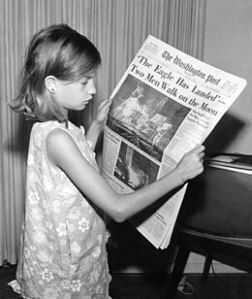 And yet, along with those people who’ve stopped watching the news because it’s too dire, I find it hard to cope with the information flowing into my world like a flood.
And yet, along with those people who’ve stopped watching the news because it’s too dire, I find it hard to cope with the information flowing into my world like a flood.
I find it harder to cope with the thinking of those people who only watch the news they agree with, say, all Fox or all CNN. This leads to “my party or the highway.” This is an easy route to take because it requires no thought, all you have to do is what Trump or Biden tells you to do. I’m not ready to hand my point of view or my vote to the head of any party.
It amazes me how many people fiercely argue in favor of one idea or another while, without shame, admitting they know little or nothing about the alternatives.
Time was, keeping informed was considered a civic duty, our way of contributing to and understanding the so-called “marketplace of ideas that justifies our rights to the freedoms of speech and press. This is what the founding fathers believed. But now, such things as civic duty are out of fashion.
I cannot help but remember what Thomas Paine wrote years ago in Common Sense: “THESE are the times that try men’s souls. The summer soldier and the sunshine patriot will, in this crisis, shrink from the service of their country; but he that stands by it now, deserves the love and thanks of man and woman. Tyranny, like hell, is not easily conquered; yet we have this consolation with us, that the harder the conflict, the more glorious the triumph. What we obtain too cheap, we esteem too lightly: it is dearness only that gives everything its value. Heaven knows how to put a proper price upon its goods, and it would be strange indeed if so celestial an article as FREEDOM should not be highly rated.”
I’m old enough to believe that these words apply to the crises we face today. However, the first step is knowing what those crises are by reading the news.
–Malcolm
Malcolm R. Campbell and his father Laurence R. Campbell were journalists and college journalism teachers.
November 9, 2023
‘Reckoning,’ book 26 in Catherine Coulter’s FBI Series
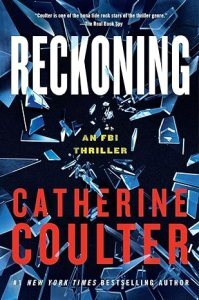 Released in 2022
Released in 2022
I’ve read all, or almost all, of the books in this series which began in 1996 with The Cove. She co-authored three books with J. T. Ellison in a Brit in the FBI series. All of these novels move quickly, feature snappy dialogue, and have characters whose histories have grown deeper (like, for example, the characters in James Patterson’s Alex Cross books) as the series progresses. The action focuses on husband and wife agents Agents Dillon Savich and Lacey Sherlock, and for those who wonder, somebody finally said, “No shit, Sherlock,” just to get that slang out of the way. I haven’t read any of Coulter’s romance series, so can’t speak to them.
From the Publisher“Agents Savich and Sherlock are back in the latest installment in Catherine Coulter’s #1 New York Times bestselling FBI Thriller series, and this time both are enlisted to help women with traumatic pasts who are in mortal danger.
“When she was twelve years old, Kirra Mandarian’s parents were murdered and she barely escaped with her life. Fourteen years later Kirra is a commonwealth attorney back home in Porte Franklin, Virginia, and her goal is to find out who killed her parents and why. She assumes the identity of E.N.—Eliot Ness—and gathers proof to bring down the man she believes was behind her parents’ deaths. She quickly learns that big-time criminals are very dangerous indeed and realizes she needs Dillon Savich’s help. Savich brings in Special Agent Griffin Hammersmith to work with Lieutenant Jeter Thorpe, the young detective who’d saved Kirra years before.
 Coulter
Coulter
“Emma Hunt, a piano prodigy and the granddaughter of powerful crime boss Mason Lord, was only six years old when she was abducted. Then, she was saved by her adoptive father, San Francisco federal judge Ramsey Hunt. Now a twelve-year-old with a black belt in Tae Kwon Do, she narrowly saves herself from a would-be kidnapper at Davies Hall in San Francisco. Worried for her safety, Emma’s entire family joins her for her next performance, at the Kennedy Center in Washington, D.C.. Sherlock and officers from METRO are assigned to protect her, but things don’t turn out as planned…”
From the ReviewsKirkus: “Pulse-pounding terror mixed with romance makes for page-turning pleasure.”
Publishers Weekly: “Scintillating suspense surrounds the dual mysteries as the stakes rise for Savich and Sherlock and those they’re seeking to protect. Series fans will be riveted from the very first page.”
Library Journal: “The twenty-sixth installment of Coulter’s FBI series delivers just what the author’s fans have come to expect: a story that doesn’t go where we might expect it to; a supporting cast of new and exciting characters; and two familiar faces, Savich and Sherlock, who have come to feel like old friends.”
–Malcolm
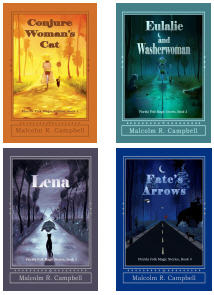 Malcolm R. Campbell is the author of the Florida Folk Magic novels which you can buy at a savings in one Kindle volume
Malcolm R. Campbell is the author of the Florida Folk Magic novels which you can buy at a savings in one Kindle volume
November 8, 2023
Edyth
One picture sits on my desk, my 24-year-old grandmother Edyth standing next to the farmhouse holding my 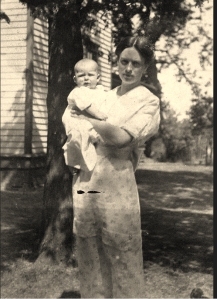 infant mother Katheryn in her arms. We can see the side of the house, a shade tree, and in the background, a steam tractor. I like Edyth’s no-nonsense expression.
infant mother Katheryn in her arms. We can see the side of the house, a shade tree, and in the background, a steam tractor. I like Edyth’s no-nonsense expression.
This picture sits on my desk because I think I would have liked my grandmother and it reminds me I still need to learn how to forgive my grandfather and my step-grandmother for never mentioning Edyth, much less telling me she was my real grandmother.
I grew up believing Edyth’s sister Laura was my grandmother. Laura was a wonderful person. When my grandfather’s eyesight began to fail, he taught Laura how to shoot the pesky squirrels in the backyard and I taught her how to drive. She aced her driving test and wiped out a lot of squirrels until the cops showed up and asked why she was firing a .38 in the yard.
Edyth was shrouded in mystery, Laura’s sister who died of typhoid from the family well in 1914. My grandfather married Laura and this was something they kept quiet about because marrying your deceased wife’s sister didn’t look good. However, they kept it so quiet that their grandsons, my two brothers and I, were never told until after Joe and Laura died.
This lie kept Edyth and all the stories and memories of Edyth out of our consciousness because she was not mentioned in family yarns and memories. I think my brothers and I could have handled the truth about Laura and Edyth when we were in high school if not sooner. My parents respected my grandparents’ wishes to keep quiet about it. I wouldn’t have.
So it is that I still haven’t forgiven my grandfather and step-grandmother or my parents for covering up just who Edyth was. I know I should. The photo on my desk reminds me that I should. So far, I can’t because it made me feel discounted when I finally learned the truth, i.e., that I couldn’t be trusted to know my real grandmother’s name.
Many miles and many years after Edyth died in 1914 in Illinois and Joe married her sister, Laura, there was no longer a reason to keep that part of our family’s history secret. So it is that the photo on my desk helps me understand who I am, who my mother was, and who my grandmother was. I have yet to forgive those who kept me from knowing Edyth–sad to say.
–Malcolm
November 7, 2023
How do we urge people to fight climate change without scarring them into inaction?
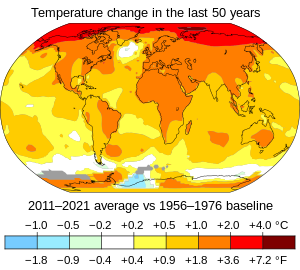 Every few weeks or so, I see an online article about one expert or another who states that climate change is a hundred times worse than s/he thought.
Every few weeks or so, I see an online article about one expert or another who states that climate change is a hundred times worse than s/he thought.
Such statements or predictions are probably published in the hope they’ll wake people up. I wonder if they have the opposite impact. Perhaps they make the problem too large to grasp or make it sound like it’s too large for anyone to do anything about.
Personally, I would rather see climate change information disseminated in bite-sized chunks that include things individuals can do rather than in large-scale reports that no individual can address.
Most people don’t have the money, knowledge, clout, or other means of addressing large-scale warnings, much less separating the wheat from the chaff when politicians and experts are not on the same page about the dangers or the remedies.
We need facts we can trust. For example, some people say it’s pointless buying an electric car when the power for recharging facilities comes from power plants using fossil fuels. What about this? Can we have a discussion without bumping into people and groups with a vested interest?
Some people say that California’s approach–making everything connected to fossil fuels illegal–is the route all states need to follow. But is it? On the surface, that approach is pricing everything out of the range of manufacturers and buyers.
When the issue becomes partisan, we all lose and have no idea what we can personally due to benefit the planet.
–Malcolm
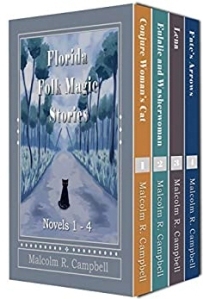 Malcolm R. Campbell is the author of contemporary fantasy, paranormal, and magical realism short stories and novels. Save money by buying all four Florida Folk Magic novels in one Kindle volume.
Malcolm R. Campbell is the author of contemporary fantasy, paranormal, and magical realism short stories and novels. Save money by buying all four Florida Folk Magic novels in one Kindle volume.
November 6, 2023
‘Sorry, Wrong Number’ with Barbara Stanwyck and Burt Lancaster
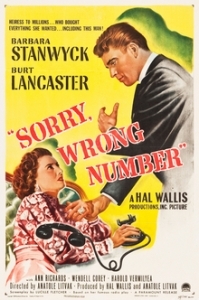 “For sheer, unadulterated terror there have been few films in recent years to match the quivering fright of Sorry, Wrong Number–and few performances to equal the hysteria-ridden picture of a woman doomed, as portrayed by Barbara Stanwyck.” — Cue Magazine.
“For sheer, unadulterated terror there have been few films in recent years to match the quivering fright of Sorry, Wrong Number–and few performances to equal the hysteria-ridden picture of a woman doomed, as portrayed by Barbara Stanwyck.” — Cue Magazine.
My wife and I enjoy noir films. Fortunately, Turner Classic Movies (TCM) owns a lot of them and shows them frequently.
“Sorry, Wrong Number” began its life as a 1943 radio play written by Lucille Fletcher and starring Agnes Moorehead. When Fletcher was asked to expand her play into what became the 1948 feature film, Moorehead was considered a character actress and didn’t get the role. That went to Barbara Stanwyck who–in my view–turned in a stunning performance that received an Oscar nomination. Some critics thought the radio play was stronger due to the scenes that had to be added to bring the story up to feature film length. According to WNYC, “No less an authority than Orson Welles called it ‘the greatest single radio script ever written.’”
In short, a neurotic invalid (Stanwyck) accidentally overhears a phone conversation plotting her own murder. She’s bedridden and spends most of the movie on the phone trying to puzzle out the strange mix of conversations, callers, and busy signals. At one point Stanwyck is told to call a specific number for information about her husband and, after trying and not getting an answer, she asks the operator what the number goes to. The morgue, she’s told.
Of course, we wait for the line “Sorry, wrong number.” We wait a long time. When we finally hear it, it packs a punch. The suspense is off the scale and that’s what makes it a great noir film.
–Malcolm
November 5, 2023
Haunted by an old traffic accident
 When I was five years old my parents, my two younger brothers, and I were traveling between adjacent states to visit relatives. We were in a hilly area when the tractor-trailer we were passing drifted into our lane to (apparently) pass a smaller car in front of it. In those days, it was common to honk the horn twice before passing, so the driver of the truck either didn’t hear our horn and/or didn’t check his side mirrors before starting to pass.
When I was five years old my parents, my two younger brothers, and I were traveling between adjacent states to visit relatives. We were in a hilly area when the tractor-trailer we were passing drifted into our lane to (apparently) pass a smaller car in front of it. In those days, it was common to honk the horn twice before passing, so the driver of the truck either didn’t hear our horn and/or didn’t check his side mirrors before starting to pass.
Our Nash was similar, though two years older, than the 1951 model shown here.
Mother honked the horn again. When the truck driver realized we were there, he overcorrected and ran off the road to the right, rolling over and over through a rough field. Our car didn’t come into contact with the truck. We stopped. Somebody called the highway patrol, and I remember sitting for ages in our car on the road’s shoulder while the police talked to my parents and checked on the truck far across the field.
Apparently, drivers in other cars confirmed what happened, so we were finally allowed to leave. My only memory of the conversation was the officer’s comment that the kids didn’t need to be punished by having to sit in a hot car any longer. At the time, I didn’t like his use of the word “punished.”
I don’t remember my parents ever mentioning the accident in my presence after we left. At the time, of course, in this pre-seatbelt era, I had no concept of the condition of the people in the truck. By the time I seriously thought about it, my parents had died and my brothers have no memory of the incident. I have no idea why I didn’t think about the accident, say, while in high school or college, and ask my parents about it. I’m certain though that if one or more occupants in the truck were killed, my parents wouldn’t have told me. They concealed the worst of the past from us.
Online searches have yielded nothing either in public records or newspaper accounts. And yet I wonder, decades after the accident, about what happened to the people in that truck. Perhaps it’s best not to know, though I don’t think so.
–Malcolm
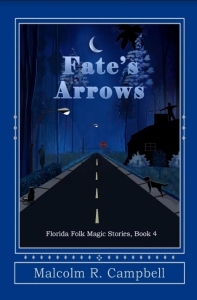 Malcolm R. Campbell is the author of magical realism novels including “Fate’s Arrows.”
Malcolm R. Campbell is the author of magical realism novels including “Fate’s Arrows.”
November 3, 2023
Flannel Season
“The fashion calendar has four main seasons: Spring/Summer (SS), Autumn/Winter (AW), Resort/Cruise and Pre-Fall. The first two are the main runway seasons presented at fashion weeks, and the latter inter-seasonal collections have been introduced to bridge the gaps between the main two seasons and introduce newness more frequently.” – Retail Dogma
I don’t have the money, the inclination, or the sense of style to wear the “proper” clothes for the official fashion seasons. So, I have no need for an expert to help me do a twice-a-year “closet swap” to keep what I’m supposed to be wearing easy to pull off the hangar. I have clothes for two seasons of the year stored at opposing ends of the closet, flannel season and denim season.
The flannel season begins when things (the weather, letters from the feds, people’s expressions) get frosty, i.e. about November 1. Denim season begins in the spring whenever the hell that turns out to be. Flannel comes from places like Land’s End and L. L. Bean. My wife finds denim jeans and shirts (always Wrangler) at various online sites now that I can no longer shop at Sears.
 I’m currently wearing this “Men’s Scotch Plaid Flannel Shirt” from L. L. Bean. This is a buffalo plaid and one of my favorites in addition to the Stewart and Campbell plaids. I probably wear the Campbell “Black Watch” pattern the most because it is, after all, the family’s colours.
I’m currently wearing this “Men’s Scotch Plaid Flannel Shirt” from L. L. Bean. This is a buffalo plaid and one of my favorites in addition to the Stewart and Campbell plaids. I probably wear the Campbell “Black Watch” pattern the most because it is, after all, the family’s colours.
Now these shirts serve as light-weight jackets, though when I lived in northern Illinois, they needed multiple layers of additional jackets on top to be somewhat warm. One didn’t worry too much about fashion when commuting an hour to work on show-covered Chicago freeways, mainly the Edens.
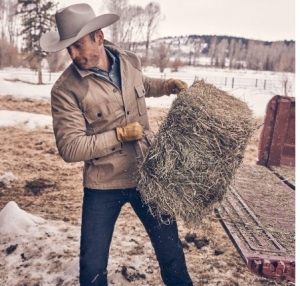 Denim season ended on Hallowe’en. I know the Levi name is famous, but Wranger, which came on the scene in 1947, fits better for those who work rather than those who want to look like they work. Seriously, Wranglers are much better than Levis if you like horses. Wrangler advertises its denim with this picture which–trying to be modest here–looks like me.
Denim season ended on Hallowe’en. I know the Levi name is famous, but Wranger, which came on the scene in 1947, fits better for those who work rather than those who want to look like they work. Seriously, Wranglers are much better than Levis if you like horses. Wrangler advertises its denim with this picture which–trying to be modest here–looks like me.
Suffice it to say, Wrangler clothes are tough and functional. According to the company’s website, “Wrangler® is enduring American freedom; it’s in the spirit of people who work hard, have fun and recognize courageous individuality. As a company, we believe in solid commitments and perseverance in the face of obstacles and challenges. Most of all, we respect ourselves, each other, our western heritage and the environment in which we live.”
So there it is flannel and denim. There’s nothing else I need in my closet.
–Malcolm
November 2, 2023
Julie London, ‘Cry Me a River,’ and other torch songs
“A torch song is a sentimental love song, typically one in which the singer laments an unrequited or lost love, either where one party is oblivious to the existence of the other, where one party has moved on, or where a romantic affair has affected the relationship. The term comes from the saying, ‘to carry a torch for someone,’ or to keep aflame the light of an unrequited love. It was first used by the cabaret singer Tommy Lyman in his praise of ‘My Melancholy Baby.'” – Wikipedia
Torch singers appeared in supper clubs featuring music and dancing and were often shown in movies with such clubs. I loved torch songs whether it was Patsy Cline singing “Crazy,” Billie Holiday singing “Solitude,” or Dale Storm singing “Dark Moon.” My family wasn’t affluent enough to go to supper clubs or adventurous enough to go to the better dive bars, so my exposure to torch singers came exclusively through movies, records, and the singers’ TV appearances.
 1948 photo
1948 photoThough I was a big fan of Patsy Cline, when it came to torch singers, my favorite was Julie London who had an active singing career (32 albums) up until the late 1960s. She recorded “Motherless Child,” “Don’t Worry About Me,” “A Foggy Day,” and many other standards. As her sultry, contralto voice began to falter, she turned to acting in movies (“Man of the West,” “The Wonderful Country”) and television (“The Julie London Show, “The Big Valley.”)
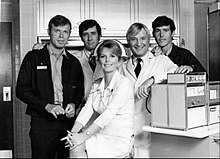 She appeared as head nurse Dixie McCall throughout the entire 122-episode run of the action-adventure drama “Emergency!” from 1972 to 1977. The series focuses on the paramedics, firemen, and hospital support staff, showing (I think) a more accurate look at firefighting techniques than shows like “Chicago Fire.” London’s second husband Bobby Troup (to her right in the photo) was also in the cast. The show was produced by her first husband Jack Webb. Like London, Troup came from the music business.
She appeared as head nurse Dixie McCall throughout the entire 122-episode run of the action-adventure drama “Emergency!” from 1972 to 1977. The series focuses on the paramedics, firemen, and hospital support staff, showing (I think) a more accurate look at firefighting techniques than shows like “Chicago Fire.” London’s second husband Bobby Troup (to her right in the photo) was also in the cast. The show was produced by her first husband Jack Webb. Like London, Troup came from the music business.
I’ve had fun watching the currently available “Emergency!” reruns via the DISH Network and appreciate the style and presence she brings to the role even though it’s a bit difficult to stop seeing London as a sexy torch singer.
–Malcolm
October 31, 2023
Satire’s getting harder and harder to write
Why?
First, I’ll leave Andy Borowitz’s satircal column in the New Yorker out of that point of view. He’s a pro and manages to keep turning out good stuff.
Most of my satirical books disappeared when my former publisher suddenly closed without assiging the rights to its authors works to the authors.
Otherwise, I find that a lot of the real news sounds like satire (and might be) or is too grim to satirize. Even if it were funny, satire aboud the Israeli war in Gaza and the latest mass shooting would be in very poor taste.
I tended to write satire about the parts of government I don’t like, the TSA and Homeland Security, for example. The most fun-to-write satire (for me) took something the government was actually doing and maded it worse than it was–assuming that was possible.
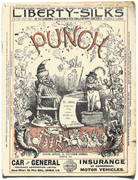 But now I find most of the news so grim, it’s hard to place a humorous spin on it. That’s too bad because satire has been a time-honored method of poking fun at inept leaders and their policies. “MAD Magazine” was a favorite of mine when I was in highschool. Even better was “Punch Magazine” (1841 – 1992 with a short-lived revival between 1996 and 2002) from Britain. I found it amusing even thouh I was never really up to dte about British politics.
But now I find most of the news so grim, it’s hard to place a humorous spin on it. That’s too bad because satire has been a time-honored method of poking fun at inept leaders and their policies. “MAD Magazine” was a favorite of mine when I was in highschool. Even better was “Punch Magazine” (1841 – 1992 with a short-lived revival between 1996 and 2002) from Britain. I found it amusing even thouh I was never really up to dte about British politics.
 I’m also a fan of France’s Charlie Hebdo which features work that’s a bit edgy.
I’m also a fan of France’s Charlie Hebdo which features work that’s a bit edgy.
The Shakespeare plays are filled with statire, lines that work within the context of the story and also poke at the existing monarchy. My favorite comes from Hamlet in the lines: “The play’s the thing/ Wherein I’ll catch the conscience of the king.”
In satire, we’re always trying to catch the conscience of the king or the president or the head of some agency.
To my mind, government lends itself to satire because it’s so inept at everything. That’s my Libertaian point of view. Like Jonathan Swift, we all want to write a modest proposal.
–Malcolm
October 27, 2023
His name is Card and he probably won’t survive
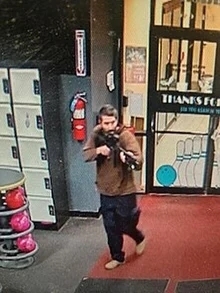 Suspect
Suspect
Many of those who know he’s the suspect in the Lewiston, Maine mass shooting on October 25 in which eighteen people were killed and thirteen were injured probably don’t want him to survive. I guess the people who think that way think his death “evens things out.”
Hardly.
There have been 487 mass shootings in the U.S. this year with 571 dead and 1,947 injuries. You don’t need a complicated equation to see that the country is averaging over one shooting per day. While I’m against the ownership of military-style weapons by civilians because they greatly increase the number of casualties, I think the issue is larger than too many guns.
Are we bored with the problem yet? Perhaps because as individuals we’re apparently powerless to stop the epidemic short of bashing the NRA which, while not surprising, hasn’t solved the problem of why this is happening.
According to Everytown Research, “Mass shootings haunt our nation’s collective conscience. Each breaking news alert floods the nation with grief, fear, and anger at the countless acts of preventable violence happening in schools, churches, parks, supermarkets, and other places where people are going about their everyday lives.”
True, but hardly earthshaking.
The Pew Research Center provides a lot of statistics for analysis, but they are more WHAT than WHY. Likewise, the Violence Project. Numerous other Internet sites provide simiar stats.
An EFSGV report states thatm “More than two-thirds of mass shootings are domestic violence incidents or are perpetrated by shooters with a history of domestic violence, according to one of the first peer-reviewed research papers exploring the links between domestic violence (DV) and mass” Okay, there’s a clue, but where does it lead us?
Dr. Jillian Peterson says “Perpetrators tend to be radicalized through studying other shooters before them. Many of them spend time on the internet in kind of these dark chat rooms where violence is really celebrated and validated. And then they go into this act knowing it’s their final act. So they’re kind of actively suicidal, planning to die in the act. They have access to the firearms that they need. And many of them leak their plans. Many of them tell other people they’re thinking about violence before they do it. And then they go out and they choose a location that’s symbolic of their grievance with the world because they’re looking for this fame and notoriety in their death that they didn’t have in their life.”
Helpful to know as is the entire interview. What frustrates me, and perhaps others is that the statistics don’t lead us to an answer, and neither do the best analyses of what’s happening and how we can stop it. That is, we can’t go out an arrest everyone who can get a gun, who has a grievance, who has mental issues, who comes from a dysfuntional family, or who is simply pissed off at the world or his/her workplace.
So, we’re stuck watching it happen like a bad movie without an ending. The shootings make many of us feel powerless less and perhaps that’s the way the killers feel.
–Malcolm



